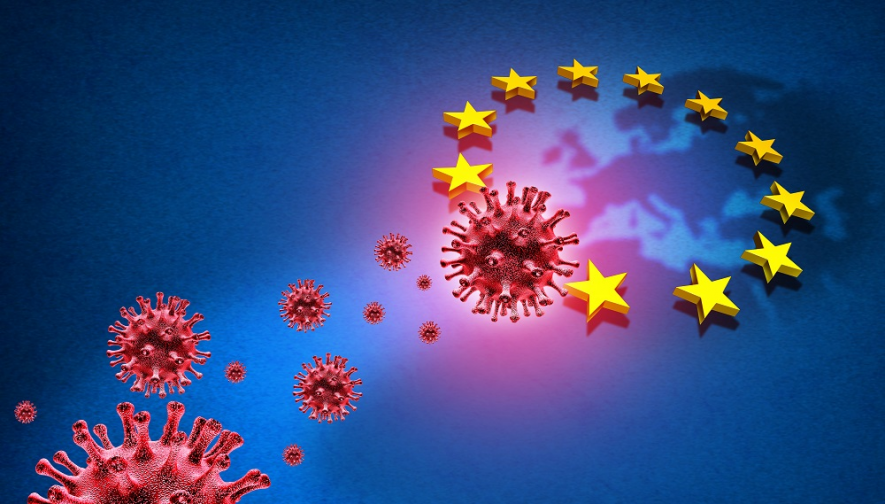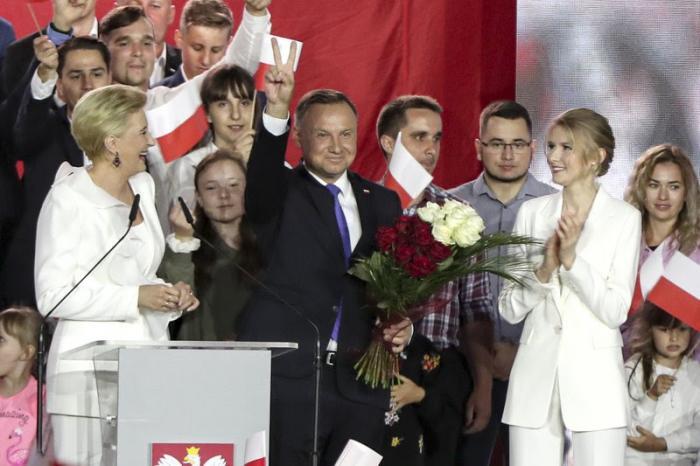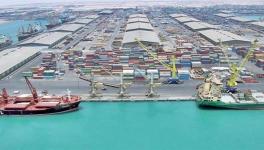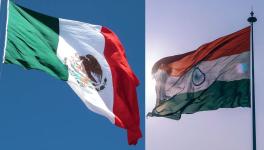EU Summit to Reboot India’s World Outlook

India-EU virtual summit will take place on July 15, 2020, under the shadows of the cataclysmic Covid-19 pandemic.
One of the enduring urban legends in modern times is the quip attributed to Henry Kissinger, ‘Who do I call if I want to call Europe?’ Kissinger disowned it subsequently, but the myth lingers on. Europe is still the sum total of a continent composed of diverse and divergent cooperating countries instead of a single EU block of 28 Member States. No one speaks of the EU’s statistics on any issue from health insurance, GDP, mobile phone usage to TV sets per capita: you get the statistics of France, Estonia, Slovakia or Portugal instead.
This is a compelling reality that Prime Minister Narendra Modi can ill afford to overlook as he prepares for his ‘virtual summit’ with the EU on July 15.
This is especially so, as the exit poll results of the knife-edge presidential vote in Poland last Sunday indicate that the incumbent President Andrzej Duda, who was running for his second term in office, could win the runoff election with 51% of the votes. Duda is an unabashedly Right-wing populist figure in the European political landscape. The EU’s fortunes hang on the balance. By Wednesday when Modi speaks with the EU leadership, we will know whether the grouping will integrate in the period ahead or its unraveling will become more pronounced.
The fact of the matter is that although Polish society is among the most pro-EU in the Old Continent, it does not deprive Poles of the right to critically remark on some crucial common European issues. And at the heart of the discord is the alchemy of European integration.
In an interview published by ABC on Sunday, Foreign Minister Jacek Czaputowicz drew his country’s battle lines with Germany and France, “We believe that the EU should be closer to citizens and therefore the role of national parliaments should be strengthened. We also support the single market and an ambitious EU budget.”
The minister also said that Poland expects EU authorities to quickly adopt an “ambitious plan” for rebuilding the EU after the crisis caused by the coronavirus pandemic, but added that such a programme must not weaken the EU agricultural and cohesion policy. The Polish FM said that as part of measures to be taken to fight the crisis, the EU cannot forget its poorest member countries “which do not have sufficient resources” to overcome their current problems. Minister Czaputowicz stressed that Poland does not agree on the struggle with the crisis taking place at the expense of the weakest EU members.
Speaking on security matters, Czaputowicz said Poland cares about the EU’s security, its close relations with NATO and good transatlantic relations with the US (read President Trump.) In Minister Czaputowicz’s opinion, NATO should remain a “military operational structure” that coordinates the defence of member states in an effective manner. He added that Poland hopes that European allies will increase their defence spending.

The anti-LGBT, populist, Right-wing President of Poland President Andrzej Duda, savouring victory in Sundayâs runoff
In a nutshell, the EU’s emergent fault lines are destined to become more pronounced in the period ahead. This is the single most critical point that Modi will have to factor in. The big question is: How does all this translate as Modi’s ‘Talking Points’ on Wednesday with Ursula von der Leyen, President of the European Commission?
Three things must be noted here. One, this is not the time to load India-EU agenda with security issues, when the EU has to go back to the abacus in the light of the poll verdict from Warsaw. The task cannot be completed in short while, either, since the EU narrative cannot be moulded without the vital input from Washington in the November presidential election. Suffice to say, the EU security and defence policies will be in a state of animated suspension for the coming several months, possibly through the one-year period ahead.
Also read: COVID-19 Pandemic Exposes “Sleight of Hand” Capitalism
Two, stemming from the above, do not clutter the mind with any notions of a joint India-EU geopolitical thrust directed against China. This is important to stress, since, inexorably, there is “China” in the air we breathe, the words we speak and the dreams we weave in South Block.
The EU foreign policy chief Josep Borrell did the Indian strategic community a favour by flagging in an interview with the Economic Times today, “In world politics, one cannot only work with those with whom we agree or share the same values. We must recognise that we live in a world of competition, of different viewpoints, and strategic objectives. The European Union is not naive about China, but we are also acutely aware of the need to work with China on the pressing issues of our bilateral relationship and in international affairs. We have to engage in a clear-eyed way, standing firm on our values.”
There couldn’t be greater clarity in the European mind. Europe does not share out phobias or complexes — or security compulsions — regarding China. Europe visualises China as a partner with a markedly different lifestyle in the global ecosystem. No doubt, Europe disapproves of China’s lifestyle in many respects and won’t hesitate to make its feelings and opinions known to Beijing, but in the final analysis, Europe not only knows its limitations, but, more importantly, also its priorities in the contemporary world situation.
Frankly, it isn’t very different from the EU’s predicament vis-a-vis India too. Clearly, Europe must be feeling highly disheartened by the happenings in our country through the past six-year period. No amount of whitewashing and obfuscation can hide the stark realities from the world community. Conceivably, the EU’s aversion toward Beijing’s policies in Hong Kong or Xinjiang cannot be any different from its horror at what is happening in J&K. Arguably, the sense of horror must be even more intense since Europe also shares with India common values from the Enlightenment.
Three, most important, Modi should keep in mind the EU’s top priority, which is about its economic recovery in the post-pandemic global setting. This will be more so under Germany’s presidency in the six-month period ahead, which also coincides with Chancellor Angela Merkel’s last stretch in public life before retirement.
India is still bogged down in the trenches struggling with the pandemic — and the worst is yet to come — while Europe has more or less emerged out of the cataclysmic experience, wounded deeply, sadder but wiser. What can India offer to forge a symbiotic relationship in such poignant times? It’s the geo-economics, stupid! The main vectors are:
-
Public health initiatives;
-
climate change;
-
connectivity;
-
sustainable green economies in energy and resource efficiency;
-
digital field, including artificial intelligence and data protection, based on “fair and balanced regulation, fostering innovation, and ensuring that individual rights and freedoms are protected”; and,
-
market economy that offers a level playing field with strong underpinnings of “ambitious, balanced, fair and comprehensive trade and investment agreements” riveted firmly on the principles of multilateralism.
It is a daunting agenda for India’s autarchic economy tied to the apron strings of the new doctrine of “Atmanirbhar Bharat Abhiyan” (Self–reliant India Scheme) – full of promise but hard-pressed to meet unless India opens up. The EU has been waiting at the gates far too long already.
Modi shouldn’t waste time on the airy nothings of geopolitics. Do not get mesmerised by catchphrases to simply get under China’s skin. The virtual summit gives an opportunity to rescue the foreign policy out of the foxhole our mandarins have dug. Focus on geoeconomics, and prioritise. Vaccine, AI, climate change, and green economy — they make a splendid start.
Also read: European Court Rules in Favour of Belgian Workers’ Party Legislator on Electoral Dispute
Get the latest reports & analysis with people's perspective on Protests, movements & deep analytical videos, discussions of the current affairs in your Telegram app. Subscribe to NewsClick's Telegram channel & get Real-Time updates on stories, as they get published on our website.
























